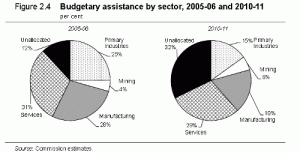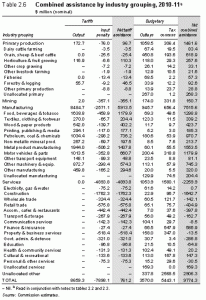The Redcliffe byelection provides the Newman government with an opportunity.
Like most oppositions who win government, particularly with a large majority, they have been having trouble justifying themselves.
At the last election electors’ preoccupation was with ridding themselves of the Bligh government. They didn’t give a lot of thought to what the LNP would do when elected. The LNP didn’t encourage them to either, as it might have moderated their voting intention.
So they won government without a compelling positive narrative, with a huge and naive backbench, and with little experience in coordinating a multi-pronged policy assault.
That has seen them perform creditably, but without gaining public kudos for it because their achievements have been obscured by poor media management.
A sixteen percent swing in Redcliffe is savage. It’s hard to know how much is due to the corruption of the previous LNP member, Scott Driscoll, and how much to concerns about the Newman government, but a proportion of it is certainly an attempt to send Newman a message.
The LNP also ran a poor campaign, and it would appear Labor ran a better one. This repeats the relative performances of the parties in the Griffith byelection, although there the LNP result, though not as good as it should have been, was certainly better than Redcliffe.
The LNP campaign message to electors was that there was no point voting for Labor’s Yvette D’Ath because if elected she wouldn’t be in government and couldn’t do anything for them. They also promised to spend up big on a number of projects including $12 million for Redcliffe Hospital, $900,000 for state schools, and $400,000 to turn the Redcliffe Fire Station into an arts and volunteer hub.
The problem with this approach is that electors feel they are being bribed, and while you can buy electors, they have enough self respect that they don’t want to feel like they’ve been bought.
In addition the LNP promised to get the GP Super Clinic that Kevin Rudd promised going and deliver on the Moreton Bay Rail link.
As the former federal Labor member D’Ath can claim responsibility for the rail link, as it was Labor federal funding that made it possible, after 119 years of it being promised. Federal Liberals ridiculed the GP Super Clinics, so it doesn’t make much sense that state Liberals are going to prove it was a good decision! Both of these policies are counter-productive to winning votes.
So the first opportunity Newman has is to fix up his campaign team. Whoever designed this campaign is not up to the job at the moment. They need to shape up, or ship out.
His second opportunity is to refashion his message.
Inasmuch as voters are sending him a message it is about perceptions. People do not like Newman, and that is why his picture wasn’t on the how-to-vote cards. Inexplicably (another question of campaigning) he was dominant in the physical campaign during the last weeks.
Newman and his handlers have to accept this as a given. What they need to understand is that “like” isn’t what it is about. Voters never liked John Howard, the odd mobbing aside, but they tolerated him over more popular opponents because he delivered.
The “Cando” man has to rediscover “Doing” and forget about trying to be likeable, and he has to focus on what he is achieving whilst comparing and contrasting with Labor’s inept performance in government. He’s tough, and that’s why he will deliver, and a tough politician would never try to buy his way to success in a byelection.
His third opportunity is to look for structural change in how his parliamentary party operates.
One thing I find strange is that there is no ginger group within the parliamentary LNP. Some members have jumped ship and joined Palmer United, but that has been flaky behaviour.
In the past there have always been ambitious and/or principled members who have acted as an internal check on party decisions.
Some of the members of those ginger groups have been promoted into cabinet, despite, or perhaps because of, their devil’s advocacy.
Where the Newman government has made policy mistakes it has often been questions of fine-tuning. When convicted paedophile Robert John Fardon was likely to be released on parole they tried to stop him being released by giving the executive power to extend his sentence.
This offended notions of separation of powers, as well as the idea of habeas corpus, and was over-turned by the courts. A different process, such as reversing the onus of proof in applications for parole in particular cases, could have returned the desired result without offending the law.
But the consultation process was truncated, or non-existent. An active ginger group, encouraged by the leadership, could have saved the government this embarrassment.
They might have also adjusted the bikie legislation, where the biggest problem appears to be the length of sentence for what appear to be minor infractions, so that sentences are more moderate, decreasing the leverage available to bikie publicists, and increasing the chances of judges and juries convicting.
The next election is due in around 12 months.
Now is the time to make the changes that have to happen, and the Redcliffe byelection result provides a narrative to make that change acceptable to supporters, and swinging voters, alike.

